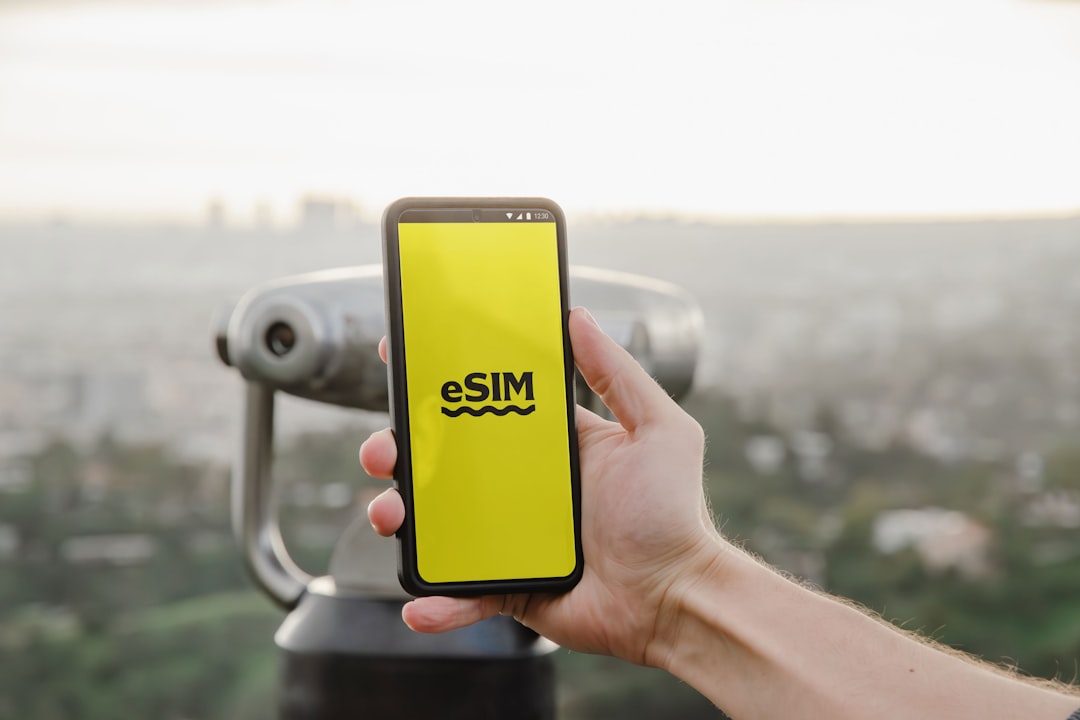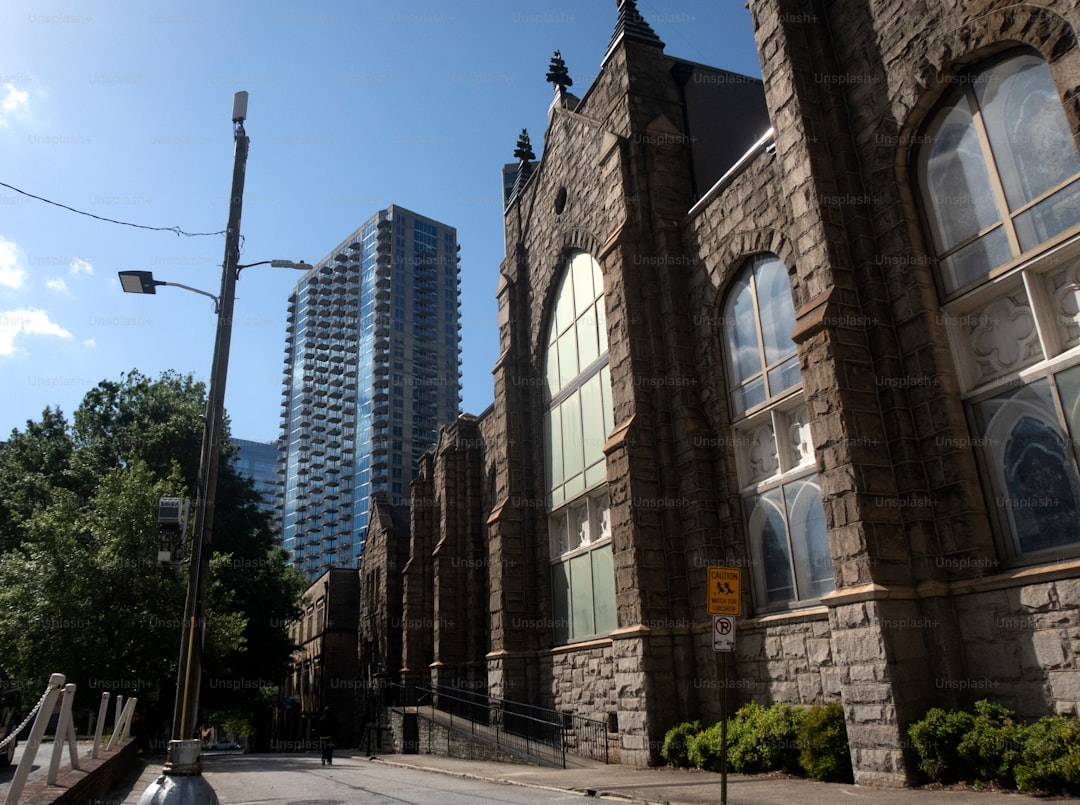Portugal Cost of Living Guide for Digital Nomads

Introduction
Portugal has become one of the top destinations for digital nomads in Europe. The country offers a mild climate, a vibrant cultural scene, reliable internet, and a relatively low cost of living compared with many Western European capitals. This guide breaks down the major expenses you can expect while working remotely from Portugal, and provides practical tips for stretching your budget without sacrificing quality of life.
Why Portugal Appeals to Nomads
- Climate: Sun‑filled days from spring through early autumn, with mild winters that rarely dip below freezing.
- Language: Portuguese is the official language, but English is widely spoken in urban areas, tourist hubs, and co‑working spaces.
- Connectivity: Fiber‑optic broadband is available in most cities, and 4G/5G mobile coverage is strong across the mainland.
- Community: A growing network of remote workers, tech meet‑ups, and expat groups makes it easy to meet peers.
- Visa Options: The D7 passive income visa and the newer digital nomad visa provide legal pathways for stays longer than 90 days.
Understanding the cost structure helps you decide which city or region best matches your lifestyle and budget.
Overview of Major Cost Categories
| Category | Typical Monthly Range (USD) | Notes |
|---|---|---|
| Accommodation | 800 – 1,800 | Depends on city, neighbourhood, and type of housing |
| Food & Groceries | 250 – 500 | Home cooking is cheaper than dining out |
| Transportation | 30 – 80 | Public transport passes and occasional rideshare |
| Utilities & Internet | 70 – 150 | Electricity, water, gas, and broadband |
| Co‑working Space | 150 – 350 | Depends on location and amenities |
| Health Insurance | 50 – 120 | Private plans for expatriates |
| Leisure & Entertainment | 100 – 300 | Events, gyms, museums, night life |
These figures are averages based on data from recent expatriate surveys, local price listings, and personal experience. Your actual spend may be higher or lower depending on personal habits, family size, and location.
Choosing the Right City
Portugal’s geography offers distinct living experiences. Below is a snapshot of the most popular bases for digital nomads.
Lisbon
The capital is the most expensive city on the list, but it also offers the largest selection of co‑working spaces, networking events, and cultural activities. Neighborhoods such as Alfama, Bairro Alto, and Graça have historic charm, while areas like Parque das Nações and Campo de Ourique feel more modern. Expect higher rent, especially in central districts.
Porto
Portugal’s second city blends historic architecture with a thriving tech scene. Rent is generally 20 % lower than Lisbon, and the city has a lively café culture. The Ribeira district offers river‑front views, while the Boavista area is more business‑oriented.
Faro and the Algarve
If sun, beaches, and a relaxed pace are priorities, the Algarve region is attractive. Faro, the regional capital, has a modest expat community and decent internet. Prices rise sharply during the summer tourism peak, but off‑season living can be very affordable.
Coimbra
A university town with a youthful vibe, Coimbra offers low rent and a strong academic atmosphere. It is a good choice for those who prefer a smaller city but still want reliable internet and cultural events.
Smaller Towns and Rural Areas
Places such as Évora, Cascais (close to Lisbon), and the Alentejo countryside provide a slower lifestyle. Accommodation can be found for under $800 per month, and grocery costs are comparable to larger cities. Internet speed may vary, so verify connectivity before committing.
Accommodation: How to Find the Right Home
Types of Housing
- Shared Apartments: A bedroom in a shared flat is the most budget‑friendly option. Monthly rent for a private room in Lisbon’s outskirts starts around $700.
- Studio or One‑Bedroom Apartments: Ideal for solo travelers who value privacy. Prices range from $900 in Porto to $1,500 in central Lisbon.
- Short‑Term Rentals (Airbnb, Vrbo): Good for stays under three months. Weekly discounts are common, but long‑term rates can be higher than local market prices.
- Co‑living Communities: Some providers combine accommodation with coworking facilities and community events. Prices often include utilities and internet, ranging from $1,200 to $2,000 per month.
Where to Search
- Online Platforms: Idealista, OLX Portugal, and Selio are popular for long‑term rentals.
- Facebook Groups: “Lisbon Expats,” “Porto Digital Nomads,” and similar groups post frequent listings.
- Local Real Estate Agencies: Visiting an agency in person can uncover deals not posted online, especially in smaller towns.
- Word of Mouth: Engaging with the nomad community can lead to sublet opportunities or house‑share arrangements.
Negotiating Rent
Portuguese landlords often expect a one‑year contract, but many are flexible for shorter terms, especially if you can provide proof of stable income. Offer to pay the first two months’ rent upfront, and you may secure a discount of up to 10 %.
Additional Costs
- Security Deposit: Usually one month’s rent, refundable at the end of the lease.
- Agency Fees: If you use a real‑estate agent, expect to pay one month’s rent as a fee.
- Condominium Fees: Some apartments include a monthly building maintenance charge (known as “condomínio”). This can add $30–$70 to your bill.
Food and Groceries
Grocery Shopping
Portugal’s supermarkets offer a good balance of price and quality.
- Pingo Doce and Continente: Large chains with weekly promotions on fresh produce, meat, and dairy.
- Lidl and Aldi: Discount supermarkets where you can find staples for lower prices.
- Local Markets: Weekly markets such as Mercado da Ribeira (Lisbon) or Mercado do Bolhão (Porto) provide fresh fruits, vegetables, and fish at competitive rates. Bargaining is not typical, but buying in bulk can reduce costs.
A typical weekly grocery budget for one person is $50–$80 if you cook most meals at home.
Eating Out
- Budget Restaurants (Tasquinha, Tascas): Small local eateries serve traditional dishes for $8–$12 per meal.
- Mid‑Range Restaurants: A three‑course dinner for two costs $35–$50.
- Cafés and Coffee Shops: A coffee and pastry is about $3–$5.
- Tourist Hotspots: Prices can be 30 % higher in high‑traffic areas, so venturing a few blocks away can save money.
Meal Planning Tips
- Cook simple dishes such as grilled fish, rice, beans, and seasonal vegetables.
- Take advantage of “prato do dia” (dish of the day) offers, which are usually a complete meal for $7–$10.
- Use the local “bacalhau” (cod) in various preparations; it is affordable and versatile.
Transportation
Public Transport
Portugal’s public transport network is reliable and affordable.
- Metro: Lisbon and Porto have modern metro systems. A single ride costs €1.50, while a monthly pass is €40–€45.
- Buses and Trams: Extensive bus routes cover most cities and suburbs. A monthly bus pass averages €30.
- Trains: The national rail company (CP) operates regional and intercity trains. A monthly regional pass for commuting can be €50–€70.
Biking
Many cities have invested in bike lanes. Lisbon’s “Bicicleta” bike‑share program costs €0.20 per minute after a free 30‑minute window. Purchasing a second‑hand bike can be a cost‑effective way to navigate city centers.
Rideshare and Taxis
- Uber and Bolt: Base fare starts around €2, with typical short rides costing €5–€8.
- Taxis: Metered rates begin at €3.50. For occasional trips, rideshare is usually cheaper.
Car Rental
If you plan to explore the countryside, renting a car for a week costs $150–$250 depending on the season and vehicle type. Fuel prices are about €1.80 per liter.
Utilities and Internet
Electricity, Water, Gas
Utilities are billed monthly. The average combined cost for a single‑person apartment is $70–$100. Electricity consumption can spike in summer due to air‑conditioning, adding $20–$30 to the bill.
Broadband
- Fiber‑Optic Plans: Major providers (MEO, NOS, Vodafone) offer 100 Mbps plans for €30–€45 per month.
- Mobile Data: 4G/5G plans with 100 GB of data start at €15 per month.
- Co‑working Packages: Many coworking spaces include high‑speed internet in the membership fee, eliminating the need for a separate home broadband contract.
Setting Up Services
If you rent a fully furnished apartment, utilities may already be included. Otherwise, you will need to present a Portuguese tax identification number (NIF) and a bank account to set up contracts. Some landlords assist with the paperwork.
Co‑working Spaces
A co‑working space provides a reliable work environment, networking opportunities, and often includes perks such as coffee, printing, and event tickets.
Popular Chains
- Second Home (Lisbon, Porto): Design‑focused space with a strong community vibe. Membership starts at €300 per month.
- Heden (Lisbon): Offers flexible desk options from €150 per month.
- Cowork Central (Porto): Mid‑range pricing at €180 per month, includes meeting rooms.
- Impact Hub (Lisbon, Faro): Social‑enterprise oriented, membership €200 per month.
Day Passes
If you only need occasional office access, day passes range from €10 to €20. Some cafés provide free Wi‑Fi but lack ergonomic chairs and quiet zones.
Choosing the Right Space
- Location: Proximity to your accommodation reduces commuting time.
- Community: Attend a trial day to gauge the vibe and networking potential.
- Facilities: Check for printing, phone booths, and kitchen amenities.
- Hours: Some spaces are 24/7, which is useful for night‑owls.
Health Care
Public Health System (SNS)
Portugal’s national health service provides free or low‑cost care to residents. To access it, you need a residency card and a NIF. As a digital nomad on a short‑term visa, you may not be eligible for full coverage.
Private Health Insurance
Most expats opt for private insurance, which offers faster appointments and English‑speaking doctors. Popular providers include:
- Bupa Global – plans from $60 per month.
- Allianz Care – plans from $55 per month.
- Cigna Global – plans from $70 per month.
These plans typically cover outpatient visits, emergency care, and prescription medication.
Pharmacy Costs
Prescription drugs are affordable compared with many Western countries. A typical course of antibiotics costs $5–$10. Over‑the‑counter pain relievers are $2–$4.
Leisure, Entertainment, and Lifestyle
Cultural Activities
- Museums: Many museums have free entry on Sundays. Average ticket price is €5.
- Live Music: Fado houses in Lisbon charge €15–$20 for dinner with a show.
- Festivals: Summer festivals (e.g., NOS Alive in Lisbon, Primavera Sound in Porto) offer day passes for €30–$50.
Fitness and Sports
- Gyms: Monthly memberships range from €30 to €60.
- Surf Schools: In the Algarve and Central Coast, a 10‑session package costs $250.
- Hiking: Trails in Peneda‑Gerês National Park are free, though transportation may add $10–$20.
Nightlife
Bars and clubs in Bairro Alto (Lisbon) and Galerias de Paris (Porto) are lively. A drink costs $4–$6. Keep in mind that many venues close early on Sundays.
Travel Within Portugal
- Domestic Flights: Low‑cost carriers (Ryanair, EasyJet) offer flights for $30–$70 between Lisbon, Porto, and Faro.
- Train Passes: The “Portugal Rail Pass” provides unlimited travel on CP trains for 3, 5, or 7 days at $100–$150.
- Bus Companies: Rede Expressos runs intercity routes for $10–$25 per journey.
Sample Monthly Budgets
Below are three example budgets representing different lifestyle choices.
Budget‑Conscious Nomad (Lisbon Suburbs)
- Accommodation (shared apartment): $850
- Groceries: $300
- Eating out (occasionally): $120
- Transportation (monthly pass): $40
- Utilities & Internet: $100
- Co‑working space (hot desk): $180
- Health insurance: $60
- Leisure & Miscellaneous: $150
- Total: $1,900
Mid‑Range Nomad (Porto City Centre)
- Accommodation (studio): $1,050
- Groceries: $350
- Eating out: $200
- Transportation (monthly pass): $35
- Utilities & Internet: $120
- Co‑working space (dedicated desk): $250
- Health insurance: $70
- Leisure & Miscellaneous: $250
- Total: $2,375
Comfortable Nomad (Lisbon Central)
- Accommodation (one‑bedroom apartment): $1,500
- Groceries: $400
- Eating out: $350
- Transportation (mixed public & rideshare): $80
- Utilities & Internet: $140
- Co‑working space (private office): $350
- Health insurance: $100
- Leisure & Miscellaneous: $400
- Total: $3,320
These figures are illustrative; individual preferences will shift the numbers. The key takeaway is that Portugal offers a range of options that can fit most remote‑work income levels.
Seasonal Cost Variations
- Summer (June‑August): Tourist demand drives up short‑term rental rates, especially in the Algarve and Lisbon waterfront. Expect a 10–20 % increase in accommodation costs if you book during peak season.
- Winter (December‑February): Prices dip, and many restaurants offer “winter menus” at reduced prices. Utility bills may rise due to heating, but overall monthly spend can be lower.
- Spring and Autumn: These shoulder seasons provide the best balance of pleasant weather and moderate prices.
Money‑Saving Tips for Digital Nomads
- Negotiate Longer Leases: Landlords often give a discount for a 12‑month contract compared with a month‑to‑month arrangement.
- Cook in Bulk: Prepare meals for several days and freeze portions. This reduces grocery waste and saves time.
- Use Public Transport Passes: Monthly passes are cheaper than daily tickets, especially if you commute daily.
- Take Advantage of Free Events: Municipal cultural calendars list free concerts, exhibitions, and workshops.
- Share Co‑working Spaces: Some spaces allow you to split a private office with another nomad, cutting the cost in half.
- Shop at Discount Supermarkets: Lidl and Aldi frequently have weekly specials on staples like rice, pasta, and canned fish.
- Utilize Loyalty Programs: Supermarkets and fuel stations offer cards that accumulate points redeemable for discounts.
Practical Steps to Set Up Your Base
- Secure Visa: Apply for the D7 or digital nomad visa before arrival. Gather proof of income, health insurance, and a clean criminal record.
- Obtain NIF: The Portuguese tax identification number is required for most contracts, including utilities and mobile phone plans. A local accountant or a “NIF service” can obtain it for you in a few days.
- Open a Bank Account: Having a Portuguese bank account simplifies paying rent and receiving transfers. Many banks allow non‑resident accounts with a passport and NIF.
- Find Accommodation: Use the platforms listed earlier, schedule virtual tours, and ask for a short‑term lease to test the area before committing to a longer contract.
- Set Up Internet: Contact a provider to schedule installation, or rely on a co‑working space for the first month while you arrange a home line.
- Register with Health Insurance: Choose a plan that offers both local and international coverage.
- Join Community Groups: Attend meet‑ups, language exchanges, or coworking events to build a support network.
Comparison with Other Popular Nomad Destinations
| Destination | Average Monthly Cost (USD) | Climate | Visa Flexibility | Language Barrier |
|---|---|---|---|---|
| Portugal | $1,900 – $3,300 | Mediterranean, mild winters | D7 and digital nomad visa | Moderate – English common in cities |
| Spain | $2,200 – $3,500 | Similar climate, hotter interior | Non‑Liberalized work visa | Similar to Portugal |
| Estonia | $1,800 – $2,500 | Cold winters, cool summers | Digital nomad visa | English widely spoken |
| Thailand | $1,200 – $2,000 | Tropical, hot year‑round | Long‑term tourist visa, smart visa | English in tourist zones |
| Mexico | $1,500 – $2,500 | Diverse climate, warm coastal areas | Temporary resident visa | Spanish predominant, English in tourist spots |
Portugal stands out for its balance of European infrastructure, safety, and relatively low cost compared with Western Europe. The visa options are straightforward for remote workers with stable income.
Frequently Asked Questions
Do I need a Portuguese bank account to pay rent?
Many landlords accept international transfers, but a local account simplifies recurring payments and avoids foreign transaction fees.
Is it easy to find English‑speaking doctors?
In major cities, many private clinics have English‑speaking physicians. Public hospitals may have limited English support.
Can I work from a café without a co‑working membership?
Yes, cafés across Portugal provide free Wi‑Fi. However, power outlets may be limited, and the environment can be noisy during peak hours.
What is the best time of year to move?
Late spring (May) and early autumn (September) offer pleasant weather and moderate rental prices.
How safe is Portugal for solo travelers?
Portugal consistently ranks among the safest countries in the world. Pickpocketing can occur in crowded tourist areas, so stay alert.
Final Thoughts
Portugal delivers a compelling mix of affordability, quality of life, and professional infrastructure for digital nomads. By understanding the cost breakdown across accommodation, food, transport, and other essentials, you can tailor your stay to match your budget and preferences. Whether you opt for a bustling city like Lisbon, a historic hub like Porto, or a tranquil coastal town in the Algarve, the country’s welcoming culture and reliable internet will support your remote work endeavors.
Plan ahead, engage with the local community, and enjoy the rich experiences that Portugal has to offer. Safe travels and happy working!
Random Posts

Nomad Accommodation Secrets Finding Home Anywhere
Treat each stay as a flexible tool: ask what minimum you need to stay productive, how much budget you can spend, and which culture or lifestyle you seek. Align these three questions to turn chaos into a clear home-anywhere plan.
2 months ago

Building a Portable Money Management System for Travelers
Learn how to craft a portable money management system that lets digital nomads earn, spend, save and report anywhere, balancing access, security, compliance and low costs.
2 months ago

Mountain Retreats for Remote Workers and Seamless Travel Strategies
Discover top mountain villages where remote work thrives, with reliable internet, affordable stays, and smart travel tips that let you stay productive while breathing fresh alpine air.
3 weeks ago

Legal and Tax Strategies for Digital Nomads Paired with Essential Coverage
Learn how to pick your legal residence, structure your business for tax efficiency, and choose the right health and travel insurance so you can work from anywhere without costly surprises.
1 month ago

Legal Strategies for Remote Workers on the Move
Learn how digital nomads can pick the right legal entity, manage tax residency, protect data, stay compliant and handle banking safely, so you can work from anywhere without legal headaches.
1 month ago
Latest Posts

Essential Software Every Remote Professional Should Use
Master remote work with essential tools: instant messaging like Slack, high definition video calls such as Zoom, and asynchronous voice apps. Streamline communication, stay connected and boost productivity.
1 day ago

Mastering Remote Work Productivity for Digital Nomads and Freelancers
Learn proven habits, tools, and tactics that help digital nomads and freelancers stay focused, deliver quality work, and maintain a sustainable lifestyle while traveling the world.
1 day ago

Tech‑Friendly European Towns Perfect for Remote Living
Discover Europe’s best small towns where fast internet, affordable living and vibrant tech communities let you work remotely while soaking up historic charm, lakeside views or mountain air.
1 day ago